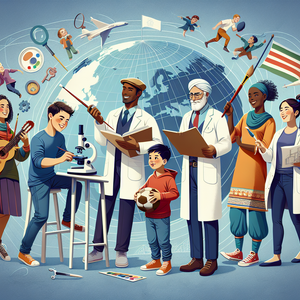The Future of Project Management: AI Tools for Software Development

In recent years, the integration of AI into project management software has accelerated rapidly. Tools like Trello, Asana, and Jira are now incorporating AI features that help in task prioritization, scheduling, and even predictive analytics. These enhancements allow project managers to automate routine tasks, freeing up valuable time for more strategic decision-making. For instance, AI-powered project management solutions can analyze past project data to predict potential bottlenecks, enabling managers to proactively address issues before they escalate. This predictive capability not only improves efficiency but also enhances the overall quality of project outcomes. According to a report from McKinsey, organizations that utilize AI in project management can see productivity improvements of up to 20-25%, showcasing the tangible benefits of these tools.
Benefits of AI Tools in Software Development
AI tools provide real-time data analysis, which helps project managers make informed decisions quickly. By analyzing team performance metrics and project timelines, AI can suggest adjustments that may help streamline workflows. For example, if an AI tool identifies that a particular team member consistently meets deadlines ahead of schedule, project managers can assign them more critical tasks, optimizing overall productivity.
Improved Communication
Communication is key in software development, especially when teams are distributed across the globe. AI-driven chatbots and virtual assistants can facilitate communication by providing team members with instant access to information, thus reducing the time spent searching for updates or clarifications. A survey by Deloitte revealed that organizations using AI-driven communication tools saw a 30% increase in team engagement and collaboration, a vital factor in successful software development.
Resource Optimization
AI tools can analyze team workloads and project requirements to recommend optimal resource allocation. This ensures that team members are not overburdened and that projects are adequately staffed, enhancing productivity. For instance, platforms like Monday.com use AI algorithms to assess which team members have the bandwidth to take on additional tasks without compromising quality or deadlines.
Risk Management
AI can identify patterns in project data that may indicate risks, such as delays or budget overruns. By flagging these potential issues early, project managers can implement mitigation strategies, ultimately leading to smoother project execution. For example, companies like IBM utilize AI systems that can predict project risks based on historical data, allowing project managers to proactively manage potential pitfalls.
The Changing Role of Project Managers
The integration of AI into project management is changing the very nature of the project manager's role. Traditionally seen as the overseer of tasks and team dynamics, the modern project manager must now adopt a more strategic and analytical mindset. With AI handling many of the repetitive tasks, project managers can focus on higher-level responsibilities, such as stakeholder communication, strategic planning, and team motivation. However, this shift also presents challenges. Project managers must develop a solid understanding of AI tools and their capabilities to leverage them effectively. This may require additional training and a willingness to adapt to new technologies. Moreover, the human element remains critical; despite the advances in AI, the ability to lead, inspire, and connect with team members on an emotional level cannot be replaced by machines. A study by the Project Management Institute highlights that interpersonal skills are crucial for effective project leadership, emphasizing that AI should complement, not replace, human capabilities.
Real-World Examples
Several companies are already reaping the benefits of AI in project management. For instance, the software development firm 10Pearls uses AI-driven tools to enhance their project management processes. By employing predictive analytics, they can forecast project timelines more accurately and allocate resources more effectively, leading to higher client satisfaction. Similarly, Microsoft’s Project for the web incorporates AI features that assist teams in visualizing tasks and dependencies, allowing for better project planning and execution. These examples highlight how AI tools are not just enhancing project management but also reshaping the way software development teams operate.
The future of project management in software development is undeniably intertwined with AI technology. As these tools continue to evolve, they will empower project managers to work more efficiently and strategically. However, the human skills of leadership, communication, and empathy will remain indispensable. The challenge for today’s project managers lies in embracing these technological advancements while maintaining the essential human touch that drives successful teamwork and project outcomes. As we look forward, it is clear that AI will play a pivotal role in shaping the future of project management, and those who adapt will thrive in this new landscape. Embracing AI not only enhances project outcomes but also positions project managers as strategic leaders in their organizations, fostering a culture of innovation and resilience in the fast-paced world of software development.
AI Project Manager
IBM, Google, Microsoft
Core Responsibilities
Manage AI-driven projects from conception to execution, ensuring alignment with strategic goals.
Collaborate with data scientists and engineers to define project requirements and deliverables.
Utilize AI tools for data analysis, risk assessment, and resource allocation.
Required Skills
Strong understanding of AI and machine learning concepts.
Proficiency in project management methodologies (Agile, Scrum).
Excellent communication and leadership abilities.
Software Development Manager
Amazon, Facebook, Adobe
Core Responsibilities
Oversee the development process, ensuring high-quality software delivery on time and within budget.
Lead and mentor development teams, facilitating career growth and skill development.
Implement best practices in software development, including code reviews and testing.
Required Skills
Proficient in programming languages (e.g., Java, Python, JavaScript).
Familiarity with software development life cycle (SDLC) and Agile methodologies.
Strong leadership and interpersonal skills.
Product Owner (AI Tools)
Atlassian, Trello, Asana
Core Responsibilities
Define product vision and roadmap for AI-powered project management tools.
Collaborate with cross-functional teams to gather requirements and prioritize features.
Conduct market research and user feedback analysis to refine product offerings.
Required Skills
Deep understanding of user experience (UX) design principles and Agile methodologies.
Strong analytical skills to interpret market trends and customer feedback.
Excellent communication skills to liaise with stakeholders.
Data Analyst for Project Management
Deloitte, Accenture, Capgemini
Core Responsibilities
Analyze project data to identify trends, risks, and areas for improvement.
Create dashboards and visualizations to present findings to stakeholders.
Collaborate with project managers to provide actionable insights based on data analysis.
Required Skills
Proficiency in data analysis tools (e.g., SQL, Python, Tableau).
Strong problem-solving and critical-thinking skills.
Ability to communicate complex data in a clear and concise manner.
Change Management Specialist
PwC, EY, KPMG
Core Responsibilities
Develop and implement change management strategies for AI tool integration within teams.
Conduct training sessions and workshops to enhance team adaptability to new technologies.
Assess and mitigate resistance to change through effective communication and support.
Required Skills
Strong understanding of change management frameworks (e.g., ADKAR, Kotter).
Excellent facilitation and coaching skills.
Strong interpersonal skills and the ability to build relationships across all levels of an organization.


